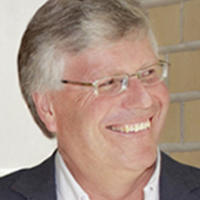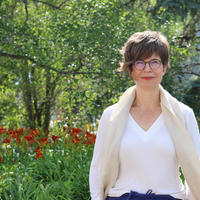Digital Humanities and Sensory Heritage (DHSH) Method Series
How Might We Do Microhistory After The Digital Turn?
Graduate Workshop with Roisin Cossar (University of Manitoba) and Nick Terpstra (University of Toronto)
Tuesday 2 May 2023, 11.30am - 2.00pm
All Welcome
How might we do microhistory after the digital turn? We have been very fortunate to be able to organise a graduate workshop on 2 May 2023 with two experts in the field of medieval and early modern history in conjunction with Prof Nick Terpstra’s visiting fellowship at St Edmund Hall in Trinity Term 2023. Prof Nick Terpstra and Prof Roisin Cossar will conduct a two-hour workshop on microhistory after the digital turn originating from their recent research projects: Prof Terpstra will start with a general historiographical and methodological introduction partly inspired by his own DECIMA project (reading will be circulated in advance), and Prof Cossar will zoom in on her ongoing project on fifteenth-century Ferrara. There will be ample space for discussion and comparing experiences.
Biographies:

Nicholas Terpstra is Professor of History at the University of Toronto. He works on Renaissance and early modern social history, exploring questions at the intersection of politics, religion, gender, and charity, above all those that deal with marginalized individuals and groups. Publications include Cultures of Charity: Women, Politics, and the Reform of Poor Relief in Renaissance Italy (Harvard: 2013) which won the Marraro Prize of the American Historical Association and the Phyllis Goodhart Gordan Prize of the Renaissance Society of America and Lost Girls: Sex and Death in Renaissance Florence (Johns Hopkins: 2010). He is currently developing the DECIMA project, an on-line digital map tracking spatial and sensory dimensions of social life in Florence and exploring early modern cross-cultural religious encounters and the experiences of religious refugees. Recent works include Religious Refugees in the Early Modern World: An Alternative History of the Reformation (Cambridge: 2015) and the Global Reformations essay collection and sourcebook (Routledge 2019 & 2021).

Roisin Cossar is Professor and Head of the Department of History at the University of Manitoba, in Winnipeg, Canada. Her research focuses on the social history of the medieval Christian church, in particular the relationship between ecclesiastical culture and the secular world in the cities of late medieval Italy. She is also interested in critical archival studies and the use of digital tools in premodern scholarship. Her most recent publications include a 2017 monograph, Clerical Households in Late Medieval Italy (Harvard) and articles and essays on subjects ranging from the concept of the seasons in late medieval Italy, to the idea of home and domesticity and the social position of women who lived with clerics in northern Italy. She currently holds a multi-year grant from the Social Sciences and Humanities Research Council of Canada to study the impact of seasonality on the late medieval Christian church, and she is also working on a collaborative project investigating an inquisitor’s register concerning women expelled from clerics’ residences in fifteenth century Ferrara.
Organised by Filippo de Vivo and Emanuela Vai with support from the Oxford Centre for European History and the Digital Humanities and Sensory Heritage Network based at TORCH.
Find out more about the Digital Humanities and Sensory Heritage Network here.